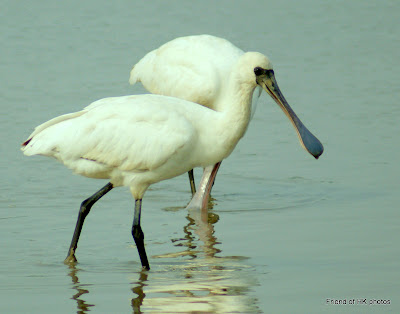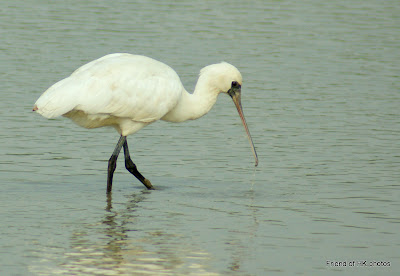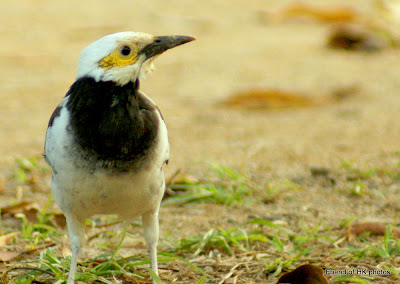The delayed winter in the North led to the late arrival of the migratory birds in Hong Kong. The annual spectacular bird show has just begun.......
Having introduced you to the wildlife in Hong Kong, I shall now focus my camera on UK~
More Photos In This Series
and Mudskippers were everywhere on the mudflats.
But it was not an easy job to catch one. I watched this Chinese Pond Heron standing there for more than 10 minutes before capturing one Mudskipper. Patience always pays off!
Sunday, 27 November 2011
Monday, 21 November 2011
A Precious Bird----Black-faced Spoonbill
The Spoonbill family of birds has six members but the Blacked-faced Spoonbill is the only one that is classified as an “Endangered” species by BirdLife International.
Because it has a very restricted distribution in coastal areas of East Asia and only breeds in some islands in North Korea, the world population of the Black-faced Spoonbill is just over 1000. So it is a very precious bird.
Luckily for us, these birds choose to winter in Hong Kong every year and sometimes we can see up to 50% of the world’s population in one winter.
The Black-faced Spoonbills feed in a very unique way. They often look for aquatic animals such as fish and shrimps in shallow water.
The Black-faced Spoonbills feed in a very unique way. They often look for aquatic animals such as fish and shrimps in shallow water.
When feeding, they swing the large spoon-like bill from side to side while moving forward to look for prey.
Once the hunt is successful, they then lift the bill up to swallow the catch.
Most of the time they hunt from night till morning and rest during day time. The resting posture looks very interesting.
According to Hong Kong Bird Watching Society’s (HKBWS) report, a total of 1,848 Black-faced Spoonbills were recorded in the world in January this year. HKBWS has dedicated a web page for this bird. http://www.hkbws.org.hk/archive/bfs/index.html
Monday, 14 November 2011
A Successful Hunt--Chinese Pond Heron
The tide was low,
and Mudskippers were everywhere on the mudflats.
But it was not an easy job to catch one. I watched this Chinese Pond Heron standing there for more than 10 minutes before capturing one Mudskipper. Patience always pays off!
Tuesday, 8 November 2011
Black-collared Starling
The natural habitat of the Black-collared Starling is subtropical and tropical dry forests. It is mainly found in South Asia and it is a resident bird in Hong Kong.
The Black-collared Starling is slightly bigger than the Common Starling at about 28cm long.
Like the Common Starlings, the Black-collared Starlings are noisy birds and can usually be heard before being seen. But they are not as good as the Common Starlings in mimicking sounds. The distinctive black “scarf” makes them very easy to identify.
They are often found in open land in the countryside as well as urban parks looking for berries, insects and worms.
Subscribe to:
Comments (Atom)























































